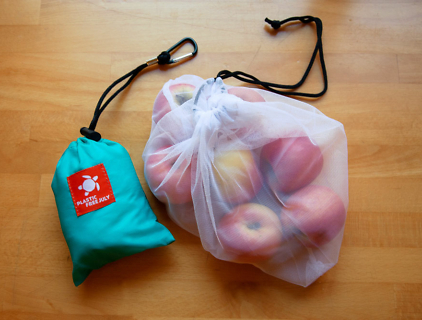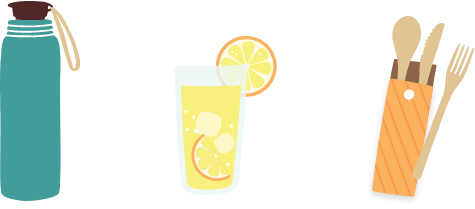Learnings from lockdown
The Plastic Free July Team | 3 June 2020
The Plastic Free July Challenge 2020 is only 4 weeks away, and while we never expected our first blog would be launched in the wake of a global pandemic, we are more ready than ever!
At Plastic Free July, we are committed to supporting every-one as much as we can, from those of you are deciding for the first time to refuse their takeaway straw to those who are trying a zero-waste lifestyle.
This year, lockdown has created unique challenges and a new way of living for a lot of us. However our founder, Rebecca Prince-Ruiz notes how we can use our experience of living through COVID-19 and apply it to reducing single-use plastic.
“When we started working from home, homeschooling, cooking, streaming – we weren’t given a course to undertake first. We had to get stuck in and learn as we went. It is the same for reducing your plastic footprint. Just take one step at a time and you can make a huge impact.”
We therefore want to devote our first blog to our learnings from lockdown and share our team’s top tips for small, daily actions that can reduce your plastic footprint:
- Fruit and veg – Look out for loose fruit and vegetables in your local grocery store or use reusable produce bags or paper bags instead of plastic ones . If your local store doesn’t do this, why not share your concerns and request they reduce their plastic packaging.
- Soap and shampoo – Making the switch from shower gel to bars of soap is an easy way to reduce consumption of single-use plastics. Bar soaps come in different blends to suit body washing, face wash, shampoo and shaving, so your line-up of bottles may become a line-up of bars.
- Bin liners – Not exciting but think how many plastic bags you could avoid by swapping out plastic bin liners! Alternatives include newspaper, certified compostable bin liners or just wash out the bin. A tip to ward against extra smells is to freeze ‘wet’ scraps until bin day or wrap them in newspaper first.
- Pet food – Incorporate pet food that comes in paper bags or tins which can be recycled, not plastic but check in with your vet to make sure it is still a balanced diet. Many butchers and fishmongers are happy to fill your reusable containers with bones, fish and other meaty treats, rather than using a plastic bag. Bird owners can also buy grains and seeds in bulk to avoid packaging.
- Toothbrushes – More and more people are choosing toothbrushes are made from sustainable, compostable materials, such as bamboo. Be aware though, bristles are usually still made from plastic, so you’ll need to cut them off before composting or reusing your bamboo toothbrush handle. A toothbrush with a replaceable head can eliminate the need to continually purchase a new plastic brush every few months, too.
Remember we are all part of the solution. Last year, by each taking small actionable steps every day, we collectively avoided 825 million kg of plastic waste that would otherwise have polluted our world. What can we achieve together this year?
Share your ideas with us on Plastic Free July’s Facebook and Instagram pages.
Stay safe
The Plastic Free July Team



